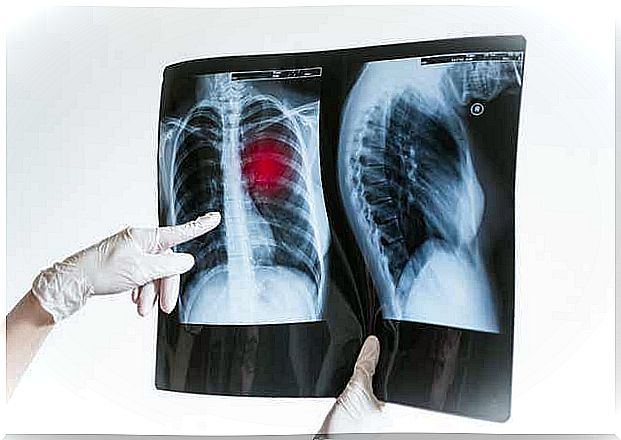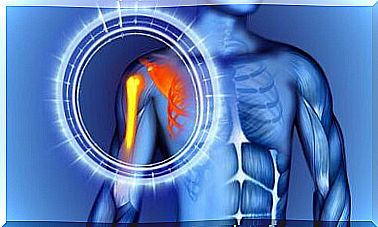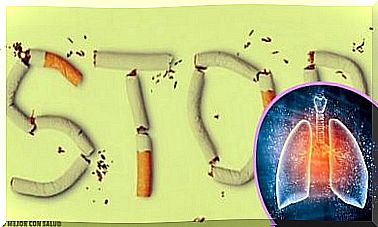What Are The Consequences Of Pneumonia?

Pneumonia is the infection that causes the highest number of hospital admissions each year. In fact, 10% of patients end up in an intensive care unit (ICU). In addition, many complications can occur after this disease. They may vary depending on the age of the patient.
According to data from the World Health Organization (WHO), this disease causes the death of about 1.6 million people worldwide each year. What is it causing? What are the consequences for some patients? Here I will tell you about all that is worth knowing.
What is pneumonia anyway?
Pneumonia is a very common infectious lung disease. It consists in inflammation of the lung tissue, accompanied by the growth and condensation of secretions in the alveolar spaces. These are pulmonary sacs in which oxygen and CO2 gas exchange takes place.
This changes the way your lungs work, which can put your health at serious risk. Although most cases resolve without complications, some patients have serious sequelae of pneumonia that affect their quality of life.

Prognosis for pneumonia
To better understand this term, let’s acknowledge that disease prognosis is measured as expected outcome, chances of recovery, and possible repercussions that will follow. The prognosis of pneumonia depends on various conditions or factors, such as:
- Age. The older you get, the worse the prognosis is due to a weaker immune system.
- The state of health of a sick person. The presence of other chronic diseases worsens the prognosis. For example, this includes diabetes, COPD, immunosuppression (low immunity), heart or kidney failure, cancer, recent injuries, and so on.
- Toxic habits. Smoking or alcoholism increases the risk of complications.
- Severe onset of the disease. The more aggressive the pneumonia, the worse the prognosis.
- Diagnostic stage. The sooner the disease is diagnosed, the greater the likelihood of a successful treatment outcome.
- Inadequate or late treatment. Failure to treat pneumonia in a timely manner or treatment with ineffective drugs increases the risk of complications.
- The cause of pneumonia. If the bacteria or viruses causing pneumonia are not commonly seen and there is no specific treatment for them, prognosis worsens.
What are the consequences of pneumonia?
Overall, one of the most important factors in limiting the complications and consequences of pneumonia is early diagnosis. If there is no good progress in the first week of treatment, possible complications should not be ruled out.
Complications and consequences are not the same for scientists. In the case of sequelae, it turns out to be permanent or long-term organ damage as a consequence of the disease. In fact, it can even affect your life when it occurs.
A complication is a serious problem that arises during the disease process. If they occur during evolution of pneumonia they increase the risk of sequelae.

Sequelae of pneumonia in adults
Among the common consequences of pneumonia, depending on the risk factors we discussed, the following conditions may occur:
- Pleural effusion (bronchopleural fistula). Lung fluid from pneumonia builds up in the layers surrounding the lungs (pleura). This prevents the lungs from ventilating properly, causing respiratory failure.
- Pulmonary abscess. Collecting pus in the lung spaces.
- Bronchiectasis. Bronchodilation that changes the normal functioning of the lungs.
- Sepsis. The infection can spread to the blood and other regions through contact with damaged blood vessels (for example, from coughing).
- Cardiovascular disorders. Disease increases the risk of developing heart disease. Pneumonia makes the heart work harder by trying to help the lungs remove fluids and transport gases through the blood.
- Exacerbation of previous diseases. It can affect diabetes, kidney and heart disease, autoimmune diseases, etc. However, it can especially negatively affect respiratory diseases such as COPD.
Consequences of pneumonia in children
As a rule, pneumonia in children is caused by viruses that usually do not have serious consequences. For example, they can be:
- Bronchiectasis. Same situation as adults.
- Obstructive bronchiolitis. So there is a narrowing of the lung sacs.
- Bronchial hyperresponsiveness. These are lung spasms (bronchospasms) caused by factors such as food or the environment. These can be elements such as dust, pollen, and more. This is a symptom very similar to asthma.
- Excessive discharge from the bronchi. The lungs make a lot of mucus. Then they become more sensitive to substances present in the environment.

Aftermath of pneumonia: what should you be aware of?
In both adults and children, the greatest complication, and therefore permanent consequences, is the death threat. Therefore, early treatment is most important. Also, if you think you have this respiratory disease, it’s best to see your doctor for testing and to reduce your risk of complications and sequelae.
Finally, prevention is also very important. Make sure you get the pneumococcal vaccine, eat a balanced diet, and maintain good health habits.








